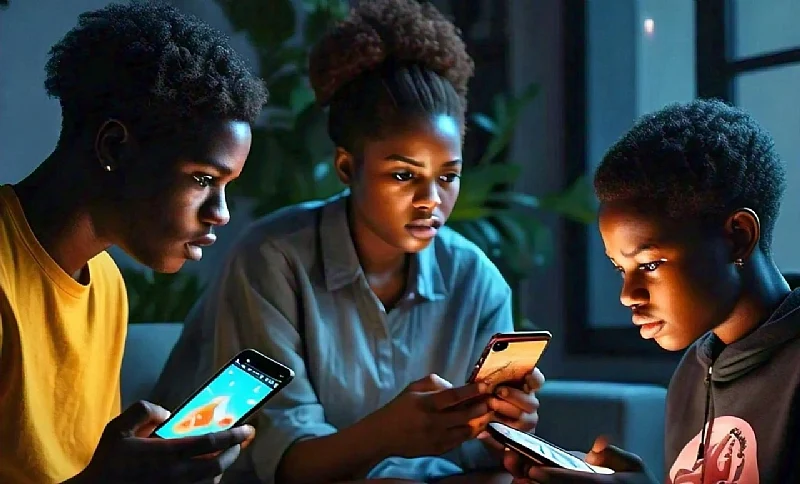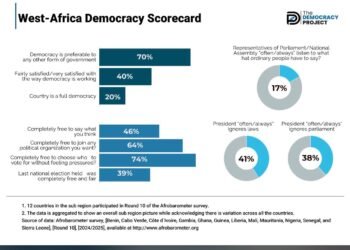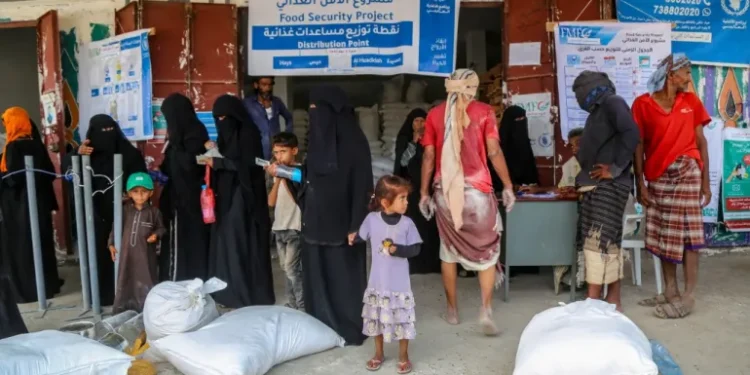In recent years, the pervasive use of smartphones and other digital devices has become a growing concern in Ghana, particularly among children. The phenomenon of phone addiction is increasingly prevalent, with detrimental effects on the physical, mental, and social well-being of young individuals.
Psychology experts have recently called for urgent interventions to address the growing issue of phone addiction among the Ghanaian populace, particularly children.
At a virtual seminar by the Mental Health Authority (MHA) titled “Conquering Phone Addiction: Sharing Real-Life Experiences,” various specialists outlined the detrimental effects of excessive phone use and proposed measures to mitigate the problem. Dr. Amankwa Arthur, Deputy Director of Health Promotion at the MHA, highlighted the severity of the situation.
“The misuse of phones, often justified as necessary for research or assignments, exposes children to harmful pictures and videos, which can be toxic.”
Dr. Amankwa Arthur, Deputy Director of Health Promotion at the MHA
Dr. Arthur also pointed out that poor family relationships and boredom contribute to the problem, with children seeking solace in their phones rather than engaging in quality family time.
Studies have shown that excessive use of cell phones can lead to anxiety and depression. Individuals addicted to their smartphones are more likely to experience chronic stress and low emotional stability.
Moreover, phone addiction can result in several negative effects, such as exposure to radiation, changes in cognitive ability, issues with social and emotional skills, sleep problems, and mental laziness.
Proposed Interventions

To combat phone addiction, experts suggest implementing appropriate rules, regulations, and activities to divert children’s attention away from their devices. Dr. Seth Mawusi Asafo, a Clinical Psychologist and Lecturer at the University of Ghana, emphasized the need for a broad range of activities to manage boredom and prevent excessive screen time.
Dr. Seth Mawusi Asafo stressed, “Moderation is key and urged parents to be patient during the process of helping their children overcome addiction.”
Dr. May Wulff-Caesar, a registered member of the Ghana Psychology Association, recommended that parents become technologically savvy to better control and monitor their children’s device usage. She advocated introducing hobbies and extracurricular activities to keep children engaged and away from screens.
Dr. Kristine Marbell Pierre, Head of Psychology at Mission Pediatrics, concurred that addressing the issue requires a gradual and moderate approach. However, she also called for stringent measures and extra activities to combat phone addiction effectively. She suggested setting rules for proper phone usage, including timing and appropriate situations for phone use.
The Experts unanimously agreed on the crucial role parents play in curbing phone addiction.
“As parents, we need to introduce hobbies to our children which will enable them to get off the screens in addition to extra curriculum activities that will keep them busy and away from the devices.”
Dr. Kristine Marbell Pierre, Head of Psychology at Mission Pediatrics
Broader Societal Impact
The experts highlighted the broader societal implications of phone addiction. Beyond individual mental health, excessive phone use can strain family relationships, reduce face-to-face social interactions, and hinder children’s development of essential social and emotional skills.
The mental laziness induced by constant screen time can negatively impact academic performance and overall cognitive development.
The virtual seminar also featured real-life experiences and concerns from various participants. Many expressed that the issue of phone addiction is becoming increasingly pervasive and detrimental.
One participant noted, “You cannot take my phone when there is homework or dinner,” illustrating the need for structured rules around phone usage.
Ultimately, addressing phone addiction among Ghanaian children requires a collective effort from all stakeholders involved. By raising awareness, promoting responsible device usage, and implementing targeted interventions, young individuals can be empowered to navigate the digital world safely and responsibly.
The call to address phone addiction among Ghanaian children is both timely and necessary. Psychology experts have provided a comprehensive overview of the issue and suggested practical interventions to mitigate the problem.
READ ALSO: Ghana International Bank to Host ‘CNVERGE’ Conference to Boost African Trade























